#presence comments
Explore tagged Tumblr posts
Text
i love that neil is canonically 5’3. like it’s easy to forget that he is also pretty small because of how much freaking aura this kid has in every room he walks into. i always forget that he’s literally like. he’s a short king. andrew’s known as the “tiny” goalkeeper but neil isn’t that much taller. yet he has insane presence so you kind of don’t even notice most of the time. and i love that he leans into things like his speed, his endurance, his agility when playing exy in line with this, as opposed to strength/size. it makes me love him even more.
#neil josten#aftg#the foxhole court#all for the game#aftg actually has the shortest main characters i think i've ever encountered?#i saw “5'3” and CHEERED king is the same height as me#love the short people in sports rep like let's goooo#also love that you kind of forget most of the time that neil's pretty small bec of how much Presence he has#same with andrew tbh but i feel like his uh lack of height is commented on more tho he's quite tiny to be fair#anyway! those are my faves and i love them.#andrew minyard
1K notes
·
View notes
Note
MK bring pissed at his dad and calling him „Emperor“ or „Your majesty“ instead of das/baba/father
Wukong would cry afterwards 😂
Ooooh that would be when he’s extremely EXTREMELY pissed, so far Wukong has been safe BUT he is not safe from the usual teenager calls their parent by their name when they’re mad phase.
MK is a very affectionate and loving kid, he has always called him Baba or Dad, but the moment the kid came into his royal office and called him Wukong he froze on the spot and was immediately thinking back to their past interactions looking for what he did wrong (he ate the kid’s peach popsicle he was saving for later).
Only Macaque has ever put the fear of god into him by calling him by his title before.
#lmk#sunset!au#ttm!au#time traveling monkey au#shadowpeach#lmk macaque#lmk sun wukong#lmk mk#I do very much like the “’using a person’s title to distance yourself from them’#technically by etiquette both Mac and MK should be referring to Wukong by his title when in others presence#but they’re not about that#Wukong would literally cry on the spot if they started doing that#Wukong cried when Macaque started just referring to him by his title after he ascended the throne#Mac had to stop immediately#didn’t stop him from getting backhanded comments from the court due to his ‘inappropriate’ behavior but he didn’t care#as long as Wukong was happy he was okay
211 notes
·
View notes
Text
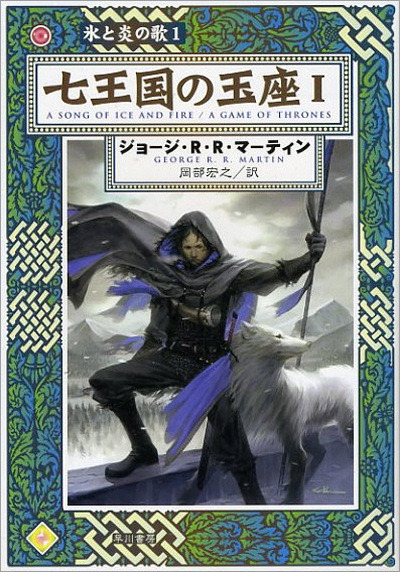
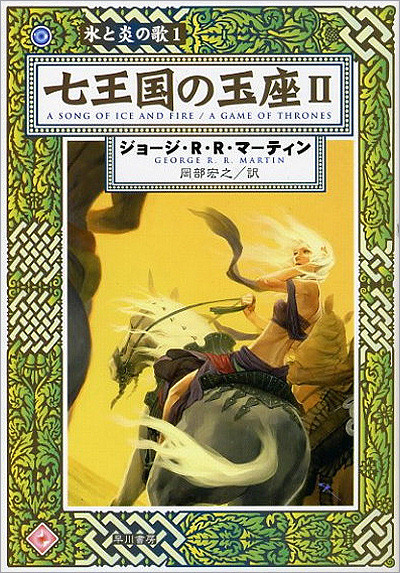
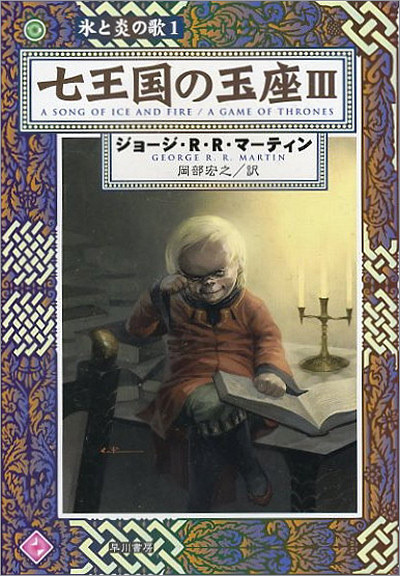
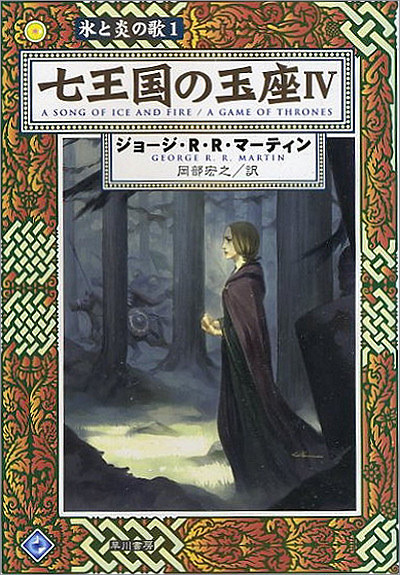
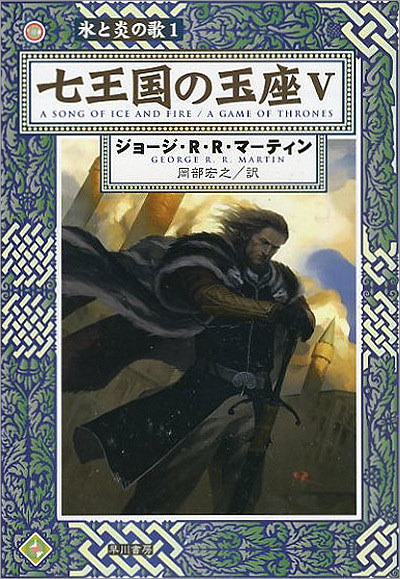
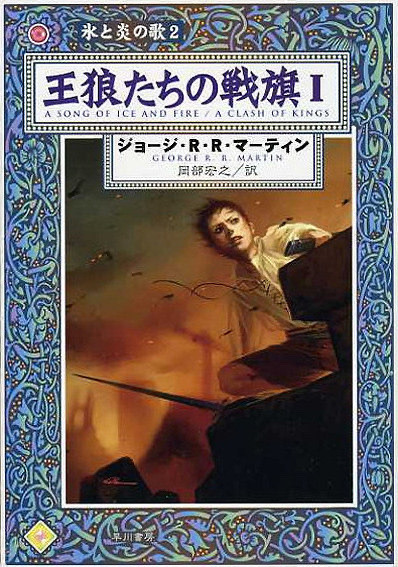
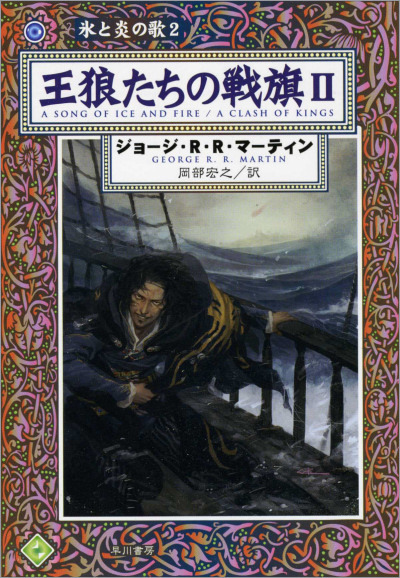

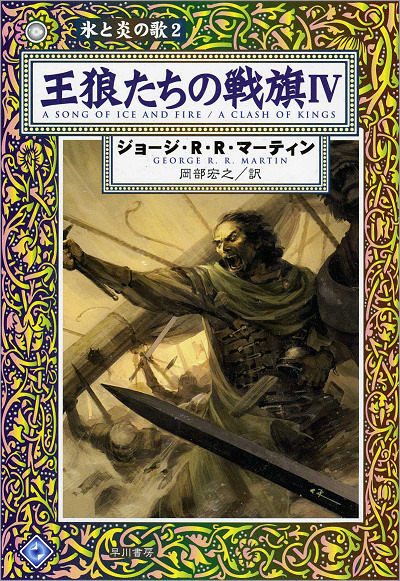
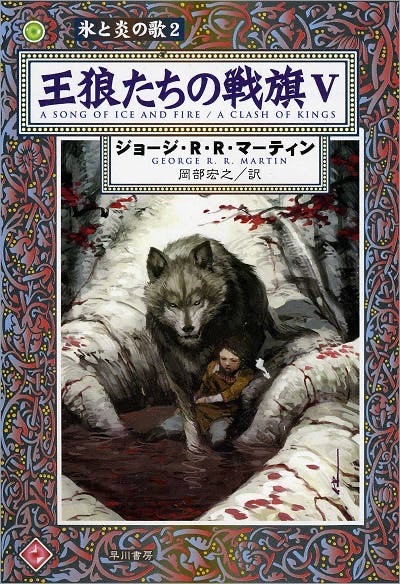
Covers for A Game of Thrones, I (Jon Snow) II (Daenerys Targaryen) III (Tyrion Lannister) IV (Catelyn Stark) V (Ned Stark) & A Clash of Kings, I (Arya Stark) II (Theon Greyjoy) III (Sansa Stark) IV (Davos Seaworth) V (Bran Stark), drawn by Ken Sugiwara for the Japanese paperback release of A Song of Ice and Fire.
#a song of ice and fire#asoiaf#asoiaf art#jon snow#daenerys targaryen#tyrion lannister#catelyn stark#ned stark#arya stark#theon greyjoy#sansa stark#davos seaworth#bran stark#valyrianscrolls#a game of thrones#agot#a clash of kings#acok#asoiaf official art#i have been trawling for the highest quality resolutions i can find of these but#ken sugiwara does not have any sort of social media presence i could find#and all uploads of the covers are either pics or the same lowering quality images each time#if i can find better hd images ill replace the pics in this...#anyway just wanted to aggregate these because i dont think ppl know how about the theon one#im relatively confident on all of these characters except maybe davos but all the forums i could find either didnt mention this book or#was the One Comment going thats davos.#so like. i think its davos.#grace post
346 notes
·
View notes
Text
Okay compiling my most critical opinions on the pjo show so far (episodes 1 & 2)
The Gods' Conflict, Foreshadowing, & Big Three Kids
The show has seemingly dropped a lot of the foreshadowing and threat regarding the gods impending war over the theft of the lightning bolt. In the book, Percy remarks about how the weather's been inexplicably weird and extreme. When he gets to camp everyone is on pins and needles about something and they don't want to talk about it but its still very present. By the time he's claimed as a son of Poseidon and everyone's like "oh fuck" and then Chiron finally explains to Percy that the gods think he's the lightning thief, everything clicks into place for the reader. It all makes sense why everything seems so wrong... because things are wrong. Meanwhile in the show, that doesn't carry through as much, so the reveal of the conflict between the gods and why that's a big deal falls flat in comparison imo.
They dropped/stalled the foreshadowing of the fates and the cutting of the string. They could very well include this in future episodes, and probably will, but I think the timing of it - Percy seeing this before he even knew he was a demigod - again carries some hefty significance and helped set the foreboding tone of things being wrong even from the beginning.
They did drop Zeus's attack on Percy in the minotaur battle completely, which does disappoint me. In the book, its lightning that blasts the car off the road. In the show, Sally seemingly loses control of the car. That change is pretty significant, because it's again losing the power of RR's foreshadowing in the book. The attack on Percy outside the camp borders was a duel attack from Zeus and Hades.
Finally, I don't like the changes they made to Percy's claiming scene, namely, the reaction from the rest of CHB. Percy being a son of Poseidon is a huge deal. When Percy's claimed, the attitude is very much begrudging reverence paired with genuine fear of what it means and what he represents. In the book, Percy is claimed. People gasp. Everyone kneels. Annabeth says, "This is really not good." In the show, Percy is claimed. People... stand there? Annabeth smiles - she's going to get her quest. The only person who has the most outright negative reaction is Luke. I won't go so far to say this is out of character for Annabeth, but it is focusing on an entirely different aspect of her character in the moment, and what the audience gets from Percy's claiming scene here, the tone, is now different from the book. Basically, the reverence and fear don't really carry across to the show, which I think is important.
The phrase "forbidden child" slaps tho.
2. Gabe's Characterization, Sally's Characterization, & Why the Changes do Make a Difference
I'm going to say this with great care: The show has absolutely depicted an abusive relationship between Sally and Gabe. The show has shown Sally to be a strong woman who would do anything for her child. The show has shown Gabe to be a controlling, toxic man.
What they have depicted in the show does not read like the characters and dynamic in the books.
Book Gabe is a violent, menacing drunk. He is so disgusting and vile that monsters avoid him. This is overwhelmingly apparent from the second Percy gets home in the book, even before he is aware of the physical abuse Sally has been facing. Percy has already been dealing with physical abuse from him, amongst other things (edit to be more specific: this is including verbal, emotional, & financial abuse). I've already spoke to it here, in-depth, so I'll try to keep it short but all of this has not been translated accurately to the screen. (Is this to say that a person must be overtly abusive to be abusive? No. But does this character on-screen feel like Smelly Gabe? No.) These things have shaped Percy (and Sally) in very specific ways. As others have mentioned: Percy cannot stand alcohol. He meets Dionysus and is reminded of his step-father. He gets to Tartarus and the air reminds him of Gabe.... The character on screen, while abusive, does not share this presence at all, and that makes a difference.
Edit: To emphasize once more, I am not saying that the show has not depicted a realistic portrayal of abuse. It has (verbal, emotional, & financial so far). It has also distinctly changed the tone and Gabe's presence from the book, to the extent that it no longer feels like the same character and that does have a rippling effect on the dynamics he shares with both Sally and Percy.
3. The Lack of Annabeth
Annabeth in the show is just like... really not as present as she is in the book so far, and I'm just kinda like, why lol?
Annabeth in the books is already way more involved in Percy's life. She was in the infirmary feeding Percy ambrosia after the attack (ulterior quest motives lol), she's the one who lead Percy around camp and re-explained godly parentage to him - and its a moment where she's very sincere with him, and even trying to help him! Instead these moments are given to Chiron and Luke, which I do get the merit of, but still, these were her moments!
Annabeth in the books had already surmised that the gods were fighting, something was stolen, and the something bad was going to happen, all before Percy had even been claimed. And she shared that with him! Again, the loss of foreshadowing and little bonding moments has me :(
I'm a little worried how they're going to deal with her crush on Luke because its pretty central to her character in the books! It helps Luke to manipulate her and also keeps her from admitting he's done something wrong. Also, it was very sweet and funny reading her get flustered - It drove home the point that she was just a kid with a crush that she didn't know how to handle. But in the show Luke spoke to her and I was expecting there to be some sort of reaction to it and there just... wasn't? (This is not something I'm laying at Leah's feet btw! Only the writers/directors!) We're only two episodes in tho so maybe we'll see it some more moving forward.
4. The Minotaur Battle
Again, I've already spoken about this in depth here but !!
The lack of Zeus's lightning strike, them all coming to a standstill and just chatting instead of running for their lives, Grover being awake and just sort of off to the side watching the fight, Sally being like "Promise Me Grover Swear it"... it all just doesn't ring right to me
I wanted more panic, more terror, more urgency. Higher stakes. I wanted Grover unconscious, I wanted to see Percy drag him into camp, and I wanted to see more of Percy's grief alongside his rage. Like the book did.
The pacing in the show here, and just overall, is weird
5. Other Stuff
Mrs. Dodds fight kind of fell flat too. It was honestly too sudden and Percy killing her in the show seemed even more accidental than in the book lol. Like, accidental impalement vs intentional swing of the sword.
They really had show Grover throw Percy to the wolves and not just gaslight him, but low-key have a part in getting him expelled? Not sure how I feel about it tbh.
More New York. I wish we had gotten the part of Percy taking the bus home with Grover included cause like? Him ditching Grover was funny, but it would have been the perfect opportunity to show Percy traveling through New York and establish it has his home. Shots of him looking at the city, walking the streets, interacting with people near his building.. yeah.
More Montauk too tbh. Like more shots of him and Sally on the beach rather than just the cabin.
Nectar and Ambrosia! Unless I missed it, which I might have, why have we still not gotten an onscreen depiction of it yet lmao.
#I'll add more tags/thoughts to this later lmao but!#pjo adaptation#pjo#percy jackson#pjo show crit#had to expand more on Gabe cause im already getting comments like: /you know there's more abuse than physical right?/#yes#I never said there wasnt#I never said that was the only form of abuse percy and sally faced#I said both show Gabe and book Gabe are abusive#but its played differently#tone wise#presence wise#and that matters
829 notes
·
View notes
Text





My favourite thing about this series retrospect apart from that one shot of sparkly Miles is how, out of all the rivals, Phoenix starts specifically insulting Shi-Long for no reason (His hair? Seriously?) and Miles instantly defends him. Phoenix suddenly being so aggressive out of nowhere? Miles immediately jumping in to defend his boyfriend? Somebody's jealous.
#ace attorney#ace attorney retrospect#ace attorney tv#miles edgeworth#shi long lang#phoenix wright#langworth#anti wrightworth#anti narumitsu#kinda#this brings me such joy#miles' extremely judgy look at the werewolf comment#there will be no agent lang slander in his presence
62 notes
·
View notes
Text
Abuse, Silence, And Why Kevin Can Fuck Himself
I recently finished watching Kevin Can Fuck Himself on Netflix, and, aside from being the most brutally honest portrayal of domestic abuse I have ever seen, I discovered a beautifully written examination of narrative as power and silence as abuse and how this manifests in our larger culture.
Without going into too much detail, the show is filmed in two distinct styles that are interleaved throughout each episode to tell a cohesive story. Allison and Kevin’s relationship as seen by the rest of the world is told through a multi-cam, laugh-track sitcom that depicts a very typical “goofy husband, shrewish wife” mainstream comedy. Allison’s life through her own eyes is told through a single-cam drama/thriller about Allison planning to murder Kevin to escape his abuse.
It’s an absolute masterclass in screenwriting, but more than that, every episode explores the difference between truth, fact, and reality, and how none of these things are quite as much or as little as story. But while the process of transforming the chaotic and plotless reality of life into a story is as involuntary and essential as breathing, misogyny and the degradation of women is just as ubiquitous in our society, and a story that exists at the expense of another person’s lived reality is a refutation of their humanity.
It's also just a great show for anyone who likes to engage with history (or reality TV or true crime or “real life stories” in general), because while we have to tell ourselves stories about her own lives, we have to tell ourselves stories about other people as well. Eternal silence is narrative death, and the perpetual silence of an unspoken narrative is often the last death we can visit on someone whose story we’d rather ignore.
I also pulled up some books – Lolita and Disgrace – that dealt with similar themes, but from the perspective of the abuser. And what strikes me the most is that, across three beautifully written stories about narrative and silence within a culture that normalizes abuse, Allison, who began her story within a state of narrative death, was the only point-of-view character who had any chance of surviving.
One of the main themes of Kevin is that a compelling story is often a story that reinforces what we already believe or like to believe, and while the story may be factual and true it often also exists at the expense of someone's lived reality. The exact same series of events can be a silly joke or a harrowing tale of abuse depending on the lens through which we view it, but historically we've only been willing to see the multicam, laugh track, sitcom perspective on unbalanced relationships.
The alchemical process of turning a series of disjoint facts and experiences into a narrative creates something new and compelling, and erases much of what previously existed. In this way, it’s entirely irreversible. We spin our experiences into a very thin thread, a story we can tell ourselves that elicits something within us, something we need in order to live with the complex, uncertain, and unsatisfying reality of life. In think in many ways the thing we elicit in ourselves is truth. But truth is both more and less than fact, often more a reflection of our own beliefs and desires than the events of our lives. And in telling that truth we may never stray from the facts, but we almost by definition cannot give voice to another person’s reality.
There's a scene in season 2 of Kevin when Allison is hit by a door – a la the classic excuse – because of Kevin’s carelessness. And while he absolutely did not hit her, the way it's written is such an incredible allegory for how Kevin has curated their story and curated their friends' and family’s perceptions of their story such that even if she tells everyone the exact, unvarnished truth of what's happening to her and begs for help, they will only be capable of seeing the laugh-track, sitcom, “Kevin is a harmless goofball and his wife is a total shrew” perspective on the events of their lives.
As so often happens with abuse, their friends and family saw Allison being hurt because of Kevin. But the alchemy of creating a narrative around Kevin and Allison is irreversible, and the series of events they witness can only be spun together to a joke, an accident, a silly, childish mistake. Allison’s reality, Allison’s pain and fear, is completely elided. Like a lost sound in the middle of a sentence, her experience goes silent, and their larger understanding of her relationship never has to change. And you feel so acutely how Allison lives her entire life in that silence.
Storytelling is human, it’s essential, there’s no other way to engage with our own lives. And it’s not lying. It’s never lying to tell the truth. But it doesn’t reflect every reality, either, because another person’s reality can’t be reflected within our own narrative, because that’s what it means to be another person. To spin two different threads.
And because narrative is the essential process by which we understand our reality, denying someone their own narrative, or denying that this narrative be heard, is inherently abusive. To allow someone a voice is to give them humanity, and to suppress it is to strip that humanity away.
Disgrace, by J.M. Coetzee, follows the story of a professor, David, who rapes a student and then fails to protect his daughter, Lucy, from being raped by intruders in their home. He destroys his daughter’s life – not through failing to protect her, but through twisting her rape into a story about why the rape of his student wasn’t wrong. The main theme of the book is generally considered to be exploitation, but Coetzee doesn’t deal with the exploitation of the rape. That’s too direct, too immediate, too easy for the reader to understand as misogynistic and wrong. Rather, Coetzee delves into “the innocuous-seeming use of another person to fill one's gentler emotional needs” (Ruden).
The rape is how we understand David as a fundamentally exploitative person, a person who denies others their humanity by converting them into a vessel for his own desires, who erases their voice in order to speak through them and give himself the things he needs. And that’s how we recognize that the way he absorbs and claims the stories of his daughter and his student is another kind of violation of their humanity. Another way of turning women into vessels for men’s pain and fear and need.
What’s fascinating is that David's student finds her voice – files a complaint against him – and is eventually able to continue with her life. The woman he raped is less damaged by him than his own daughter, because she was the woman he couldn’t permanently silence.
In Lolita, another brilliant novel about abuse, dehumanization, and storytelling, Humbert turns to the reader at the end and says, “Imagine us, reader, for we don’t really exist if you don’t.”
It’s not that Humbert knew he was fictional, but that he knew everyone was fictional. Believed the entire world only truly existed in his own mind, because anything beyond that was irrelevant to his needs. He coped with the collapse of his ability to dehumanize Dolores (who he called Lolita) by demanding that his voice be resurrected. Demanding immortality. Demanding his narrative exist in another person’s world, and thereby be given the existence and humanity that Allison and Dolores and Lucy and David’s student were denied.
Pushing his needs, finally, onto the reader, because we are the only person he has left, and a person like him can only exist through the use of another. In that way, Humbert was powerless. In that way, Kevin and David were powerless, too.
In Disgrace, David’s dream is to write an opera, and at the end of the book he realizes he’ll never finish his magnum opus. He’ll never be able to terminate the process of converting himself, his world, into a story. But he does learn to decenter himself in that narrative. And it’s when he loses all fear of death, and any conception of the self, that he gains the ability to give dogs – who he generally equates to women – a voice within his opera, his life’s work.
It’s in death that we discover our true unimportance as human beings, that we learn to let go of vanity and our conception of the self entirely. And David had degraded women so thoroughly in order to justify how he used them to meet his own emotional needs that it was only in losing all value for his own life that he could gain the ability to see them as equal voices. To actually put those voices into his own life story. It's at the cost of himself that he allows other people to truly exist, in the death of the self that he finally allows the world to exist outside of himself. It’s almost a positive character arc. Almost.
When Kevin finally loses the ability to abuse Allison, he, like many abusers, loses all desire to live. His world was built on a structure of superiority and inferiority, on beings and vessels, on the inherent value of men and the inherent meaninglessness of women’s lives. The system on which he based his entire reality has been destroyed by Allison’s declaration of the self. And, if he was a being because she was a vessel, then in losing the ability to treat her as a vessel, to fully and completely dehumanize her, he has lost his own humanity.
It may be perfectly summed up here: “Become major. Live like a hero. That's what the classics teach us. Be a main character. Otherwise, what is life for?” (Coetzee).
If you’re not to be a main character, if there indeed is no split between major and minor characters, between people and the paper dolls that populate their story, between living beings and the vessels into which they pour their need – what is life for?
Nothing. At least, not for people whose narrative must exist at the expense of another.
And that’s why I say that only a narrator like Allison could survive this kind of story. Despite beginning her story trapped in eternal silence, her reality fully elided no matter how immediate and obvious it became, Allison was the only point-of-view character of any of these three stories who didn’t establish her power through the degradation of another. Who didn’t conceptualize the world via being and vessels. Whose narrative didn’t exist, by necessity, at the expense of another person’s humanity. Whose thread could exist in a larger tapestry without destroying her sense of self.
Don’t get me wrong, she’s not generally a likable character. She’s misogynistic, cruel, selfish, jealous, desperate, afraid, and in pain. Like anyone in an abusive relationship, she’s not at her best, and she’s often pushed to do things that are ugly and disturbing because she’s simply been pushed too far.
But, for me, the power in her character is in how her last scene never felt like a final scene. Her story didn’t have to be killed, her conception of the self didn’t have to be killed, in order to reveal the brutal reality of stories twisting and intertwining without any inherently superior truth or narrative among them. Allison’s story was one of declaring herself. And that’s why it didn’t feel like it ended at the end. Instead, this felt like a beginning.
#this is probably the most egregious 'post that no one asked for' that I've ever written#but man this show HIT me y'all#and then I went back and reread parts of disgrace and that hit me too#it also made me reconsider my online presence and how I myself engage with narrative in the very small little world I'm a part of#I caught some shit a while ago and made a conscious decision to never comment on the narrative around mental health#and to be clear I was just talking about a general narrative in society at large I wasn't bringing up anything specific or attacking people#more how larger social narratives filter into and sometimes come to define individual stories#but it was upsetting to people and I figured instead I can just try to express a compassionate perspective on the mentally ill myself#but now I wonder if I've gone too far#idk without naming any names I'm getting unblocked by people who should definitely still find my mindset intolerable to their worldview#and I don't blame them because we all have reasons for the things we believe and we're all just doing our best#but it's a canary in the coal mine#it makes me think I've become so focused on not ruffling feathers that I'm tacitly approving some disturbing beliefs#and I think I could have happily ignored that if I hadn't just watched this show#posts that no one asked for#kevin can fuck himself#kevin can f*** himself#op#longer rambles
62 notes
·
View notes
Text
this might just be some special quality saskia reeves possesses and is unique to her as a person rather than an actress but often standish feels both very old (affectionately) and at the same time—very young. not necessarily naïve, though there's a little of that, but just... child-like in her body language and mannerisms. has anyone else noticed this about her? it feels like sometimes saskia makes deliberate choices that perhaps inform us of standish's backstory via the way she moves in the world. she's fidgety, she'll pull her shoulders up to her ears when asking questions, she won't always meet someone's eyes, she does a funny sidestep/shuffle when she's made to feel in the way, she is always bowing her chin. idk i'm just incredibly drawn to what saskia is doing and how she's offering us glimpses into a standish in her formative years that maybe wasn't treated v well.
#slow horses#catherine standish#saskia reeves#sometimes i'll watch her and randomly think 'oh she looks so young!' but i'm not really commenting on her appearance as much as her energy#but then i really feel that maternal aura she carries and can register her as owl-like in her wisdom and presence#something something i don't want to get too deep into it but standish has the markings of someone who wasn't well looked after as a child
43 notes
·
View notes
Text
"The heart of the show isn't Austin and Ally's romance, its their partnership. Whether they ended up together or not in the end, it wouldn't change the fact that they have a unique bond. Thats why theres so many ups and downs, it’s not to tease the fans or even to give fanservice. The affection they hold for eachother grows to become uncomparable to any other of their relationships (friends, family or romantic). That's why they have a hard time figuring out what label to give themselves. The beauty of this ship is how real and sincere they are. They care MORE about their friendship than anything else. The romance they (and most of us) were taught is way too superficial or fragile for the bond they have, and the plot is them realising that this precious bond they share is what love truly is. They never once stopped having feelings for eachother, even while dating other people. The feelings they had for other people never dimmed down the feelings they had for eachother, because it just was growing more and more with every friendly casual moments they shared. It's a no brainer that they would repress and block off those feelings to the point of being in denial until they hurt other people and annoy us with their sudden explosions of repressed feelings. That is what we expect out of a slow burn. It's easy to get distracted by the TONES of filler superficial comedy, but the real heart of the show is the preciousness of sincere frienship and partnership in romance. It's a kids show, but when you’re able to take a step back and separate what’s meant as a joke and what’s meant to be remembered, you realise how much this story stands out from other kids shows, and could have translated so well as a regular tv-show." - @yllilzneb185
#this comment reminds me of an interview that laura did while the show was airing where she said#“They’re complete opposites but they complete each other. I think that they’re always going to be together#because whether it’s friendly or romantic they’re just meant to be in each other’s presence.”#auslly#austin x ally#tv show#disney channel#disney +#disney plus#disney#austin and ally#ross lynch#laura marano#raura#austin & ally#youtube#comment#text post#austin moon#ally dawson#a&a#ross x laura
54 notes
·
View notes
Text
I do wonder if the writers of 23.5 didn't anticipate how immediately the audience would both love and deeply understand Aylin as a character
like I wonder if the reason the last few episodes felt very awkward and ham-fisted is because they assumed the viewers would find aylin strange and mysterious and had this arc that "explained" her behavior by having a big reveal about getting bullied when it seems that in reality everyone understood her whole deal from the very beginning
i also get the impression from aylin's big confession scene that they might have expected the audience to overall relate more with the popular seniors (which could explain the otherwise baffling decision to have ton and mawin present when they had no significant part in aylin's story otherwise. I also think they expected the reception to ton to be a lot warmer than it perhaps has been, but that's a whole other post)
either way it feels like there was a big disconnect from what they expected out of their viewers and what people ultimately wanted out of the show
#23.5 the series#23.5#23.5 degrees#theres still a couple more episodes so i could be wrong#its interesting because the majority of the stuff people have had problems with are things that are straight from the novel#at least from what i remember of it#no comment on the mess of that ending of episode 10#but it really feels like they wrote aylin to be this weird outsider we as the audience are supposed to be curious about#but ultimately not relate to#unfortunately they didnt anticipate their audience to be 100% aylin stans and apologists from episode 1#and i get the impression they wrote ton to be a sort of loveable but harmless scamp#but he's come off as more of a borderline unwelcome presence
100 notes
·
View notes
Text
Me after watching Betty and Simon’s love story: Aww they’re so cute together! I love them so much omg
Goes on tumblr: “Simon is selfish for not going on the bus with her! And their relationship is toxic.”
Me: I’m uh… going to. Pretend I didn’t see this .
#fionna and cake#adventure time#simon petrikov#betty grof#petrigrof#not gonna lie that was a jarring experience#I took Fionna’s comment about the bus to be because of her naivety#like ‘oh so obviously you went on the bus and had a happily ever after adventuring#but he obviously couldn’t go on the bus#that’s not how life works.#like he doesn’t have anything on him he’s not equipped to go on that trip RIGHT THEN#Instead they took a moment to enjoy the skyline and the mundane and existed in each other’s presence because they make each other happy#so like. idk
277 notes
·
View notes
Text
I find it funny (in a very very sad kind of way) when people talk about getting their fics to be “successful” or how you’ve got to “market yourself” or “solidify your brand” so people in your fandom recognize you
Like you do know this is for fun right? Branding and marketing are for LinkedIn not for picking on your blorbos
#can’t we just have fun#I mean come on#we all want people to read our fics#OF COURSE we do#but REALLY??#marketing yourself??#what’re we influencers?#just write your silly fic#and people will find it#it may only be like two lovely people who comment#but it’s something#and if you had fun?#then isn’t that worth it more than if you had to keep up a social media presence like it’s your occupation?#trin rambles#writer stuff
20 notes
·
View notes
Text

While the category name isn’t technically wrong I did a double take. These things have no business being next to each other
#tadc#the amazing digital circus#supernatural#I don’t know as much about shadow & bone so I can’t comment on its presence but this feels like some weird alternate universe superwholock
19 notes
·
View notes
Text



Look at the good boy in the comic!
Listen, Larian, I want to talk to Afrit. I am the Pet Pal, Larian. Let me shit talk Ifan right in front of the man himself with his faithful wolf companion and protector of many years. I bet he'd have some funny and interesting things to say. Can you imagine how cool that would be? And can you imagine doing the romance with Afrit actually around?
#Divinity#Divinity: Original Sin 2#DOS2#Ifan ben-Mezd#Afrit#'Your mate is a worthy combatant.'#'They're not my...'#'Why is your stink all over them?'#'Uhh...'#I'm mostly kidding of course#but the idea amuses me#does he even count as a normal animal?#you can comment on his presence but the options boil down to 'ask how you can get such a pet' or 'try to pet this magical apex predator'#well maybe I wanna just say hello and introduce myself first before we assume he is a mere pet or wants to be petted like one
26 notes
·
View notes
Text





I just realized that there's also a German version of the series retrospect video! It's not dubbed (sad but expected), only subbed but I'm still gonna treat it as the official German version fitting to the German translation of the games. It's interesting what changed in translation.
First of all, the name for the rivals "weirdo" got changed to "Schurke" which is closer to "scoundrel" in meaning. I guess they could've gone with "Spinner" to translate it more accurately but I also like "Schurke" since the rivals all fill an antagonistic role for the majority of their screentime. It definitely makes for a nice title!
I was most interested in how this little dialogue about Shi-Long would be translated so here are the German lines (translated back into English):
Phoenix: "Shi-Long Lang is an investigator from Interpol who hates prosecutors. He looks just like a werewolf."
WTF Phoenix, where do you live where Shi-Long would look "exactly" like a werewolf?? How would you even know what a werewolf looks like?
Miles: "Shi-Long Lang is absolutely adored/idolized by his pack. Be careful with your choice of words!"
Oh wow, I don't think Miles has ever joined in on Shi-Long's wolf metaphors out loud before (in a way that isn't deliberately sarcastic or poetic) so I kinda love that he does here completely unprompted! It feels a little like a pointed remark against Phoenix' insult? Like making clear that he's completely on board with the wolf thing and takes it seriously no matter what Phoenix or others think of it. That's so cute! "Vergöttert" is also a lot stronger than "admired" (basically being looked up to like a god) which definitely fits the way Shi-Long's subordinates see him but I like that Miles stresses it this much. For some reason he also uses his full name here instead of "Agent Lang"?
Phoenix: "What are you gonna (do you want to) do about it?"
Okay, his English voice has a very petulant tone with this line but the German expression sounds more aggressively like a challenge (though you could totally say it in the same petulant way so it's difficult to judge). I like that Phoenix directly asks Miles what he's gonna do about him insulting Shi-Long which makes it sound even more like Phoenix is directly antagonizing him. Like, Miles tried to switch focus by saying Shi-Long's pack would mind Phoenix talking about him like this but in actuality it's Miles himself who hates it. Somebody is a lot more protective over a certain Interpol agent than they're willing to admit... Aww, that's so cute!
#ace attorney#ace attorney retrospect#ace attorney tv#miles edgeworth#shi long lang#phoenix wright#langworth#anti wrightworth#anti narumitsu#kinda#this brings me such joy#miles closing his eyes to summon his self-control to not punch phoenix in the face for the werewolf comment#there will be no agent lang slander in his presence
31 notes
·
View notes
Text




an account I follow on instagram is currently staying at klovharun 🥹
#she replied to my comment on a previous post saying 'presences of tove and tuulikki linger in various places in the room' ough#AND she's a queer woman who's there with her partner. how perfect#also the little my spray label saying 'to be used against skurkar' lmao
35 notes
·
View notes
Text
This is random but Salena has my sticker and even wilder: she noticed me 😱
Sdgkljfsgjutfsvjtd
Context under the line
So back in October I went to käärijä Berlin gig giving out some Bojere stickers I made. Five of those went to Mikke (another story but I had sort of promised to give him some xD).
This was however also the same gig where Salena joined Jere on stage. I didnt meet her in person but had a blast seeing her perform with the boy 🥹💚
Fast forward three months later (here's to me feeling old 🫠) and Salena had an IG live performance yesterday. One friend in that live (hi Niini :3) noticed others speaking about a sticker and got curious: lo and behold Salena had decorated her laptop with the exact sticker I had given people at the Berlin gig 😳😱
My theory is that Mikke must have given one of his five stickers to Salena as a thank you for her coming. And now I have to live with the blessed knowledge that Salena has Bojere art I made on her laptop 😭
But that is not all - when I realised that yesterday I made a story about it and today I got a message that Salena has replied 😱:
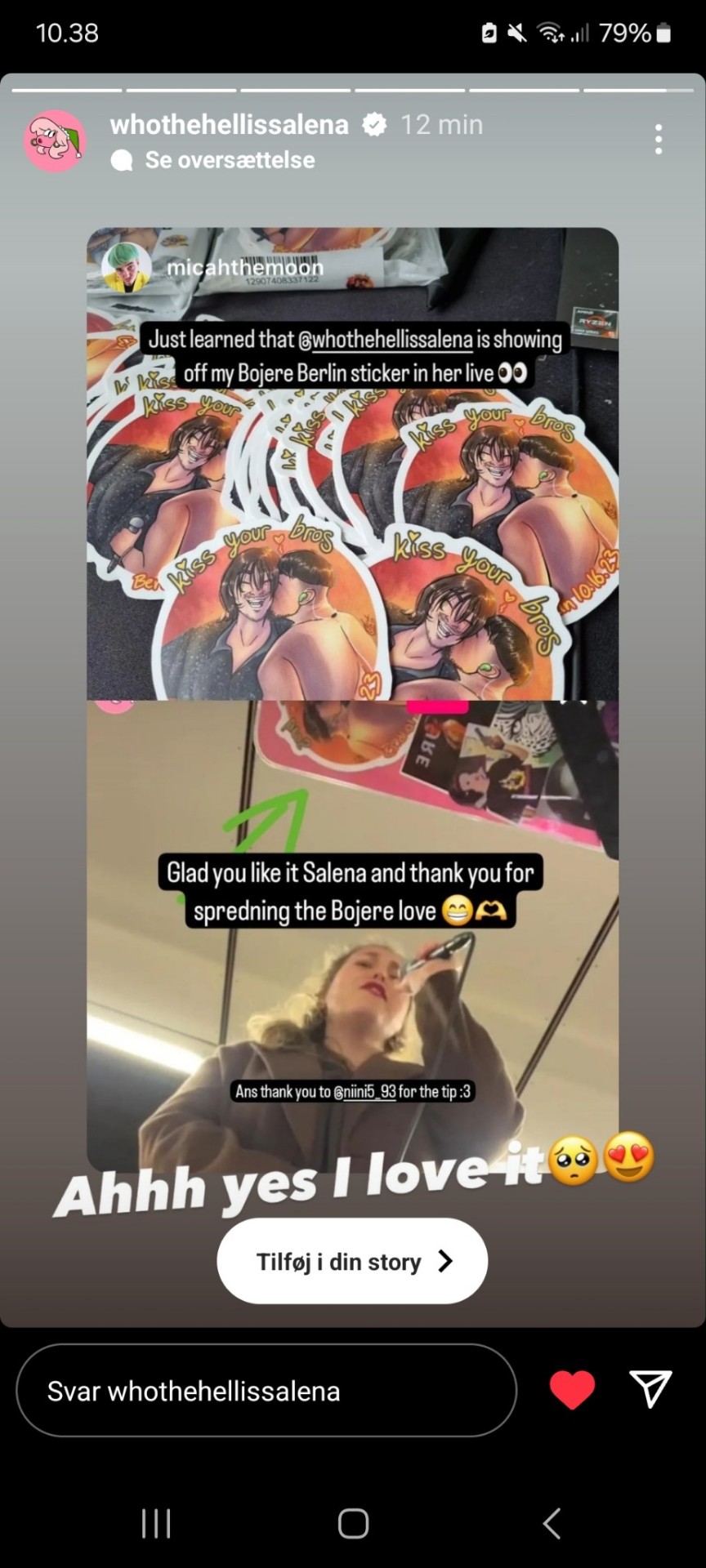
This may not seem as huge news to most of you but to me this is wild 😭
I have just gotten used to never being noticed (JO boys seems to look anywhere but at my fanart and the same with Jere *I have had häärijä and Mikke react a few times and dont get me wrong i love that too yet since it was back in November I start to wonder if it was a fluke*) and then she does this 🥺 how am I supposed to react now without coming off as awkward or creepy :'D
#i want to repeat the last sentence here:#how am i supposed to act that doesnt come off as awkward or creepy#i am so excited yet for what#she commented on the sticker?#idk#maybe it is a good thing that jere or jo never see or share my art#i would be the biggest mess#at the same time i want to let her know i appreciate this#and not come off as rude or ungrateful#i already feel rude and ungrateful for not have häärijä and mikke noticing my art back in oct-nov be enough#it can feel so disencouraging seeing the boys share all fanart but yours yk#at the same time who am i to even expect that#i am just this small little presence on ig#i have no authority#i should just be happy with what little i get and not complain#so yeah that is my thoughts about the whole thing rn#excited#overjoyed#but also worried#and overthinking my worth#the life of an autistic mess i guess#micahs thoughts#teya and salena
63 notes
·
View notes